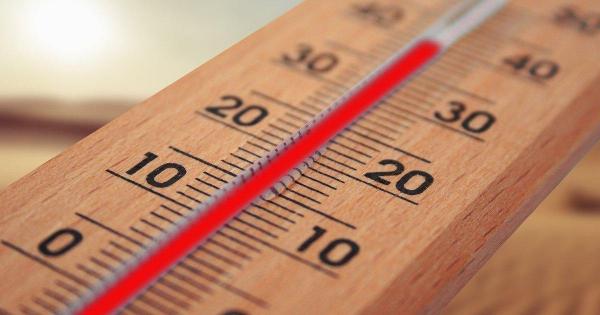
Bulgaria Introduces Temporary Truck Bans Due to Heatwave
Due to the extreme heat currently affecting Bulgaria, the country’s road authorities have decided to impose temporary traffic restrictions for trucks exceeding 20 tons in weight.
The restrictions will be in effect from Tuesday, June 24 to Friday, June 27, 2025, during afternoon hours, on selected road sections in the northern part of the country. The decision follows a long-standing Bulgarian practice of imposing such bans when air temperatures exceed 35°C. The aim is to protect the road surface from deformation and rutting, which could compromise road safety.
Bans will be enforced:
❌ From Tuesday, June 24 to Friday, June 27
❌ Between 13:00 and 21:00
Affected regions:
The traffic ban applies to nine northern regions of Bulgaria:
Ruse, Silistra, Razgrad, Targovishte, Shumen, Veliko Tarnovo, Pleven, Lovech, and Gabrovo.
List of restricted roads:
❌ Hemus Motorway: from km 310 to 375 (Shumen and Targovishte regions)
❌ Road I-2 (Ruse–Varna): sections in Ruse, Razgrad, and Shumen regions (km 12–146)
❌ Road I-3: from km 7 to 170 (Pleven, Lovech, Veliko Tarnovo regions)
❌ Road I-4 (Koritna–Shumen): passing through Lovech, Gabrovo, Veliko Tarnovo, Targovishte, and Shumen
❌ Road I-5 (Ruse–Gabrovo): km 6–115 (Ruse and Veliko Tarnovo regions)
❌ Road I-7 (Silistra–Shumen): within both regions
❌ Road II-55 (Debelets–Misyurkov Khan): in Veliko Tarnovo region
Exemptions from the ban:
The restriction does not apply to vehicles transporting:
✅ Perishable goods
✅ Special (tempered) cargo
✅ Live animals
✅ Dangerous goods
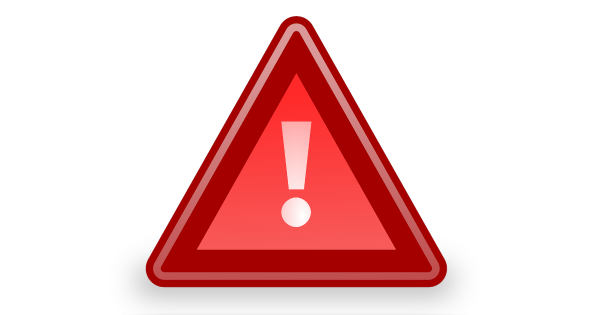
Switzerland to Close A4 in Schaffhausen – Trucks to Be Stranded Due to German Public Holiday
In connection with the upcoming Feast of Corpus Christi, which will be observed in Germany on June 19, 2025, the Swiss authorities are preparing for a buildup of freight traffic at the southern border crossings.
The authorities of the canton of Schaffhausen, in cooperation with the Federal Roads Office (ASTRA), are setting up temporary waiting zones for heavy goods vehicles that will not be processed by German customs in Thayngen and Bargen. According to official announcements, trucks heading to Germany will be directed to specially designated parking areas near the customs terminals in Thayngen and Bargen. Once these areas reach full capacity, a section of the A4 motorway within the city of Schaffhausen will be utilized. The stretch between the Schweizersbild exit and Gemsgasse street will be completely closed in both directions and converted into an emergency waiting area. Should the number of vehicles continue to rise, a similar measure will be implemented for the A4 section between Gemsgasse and Mutzentäli (in the direction of Schaffhausen city center).
Trucks will be directed to the designated waiting areas using special signage. For north-south traffic (from the direction of Bargen), detours will be in place starting at the Schweizersbild exit. The disruptions are expected to last from the morning of Thursday, June 19, until midday Friday, June 20, 2025. Swiss authorities are urging passenger vehicle drivers to avoid the area and opt for alternative routes.
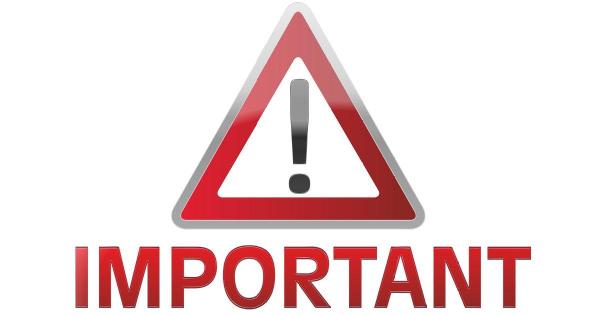
Spain temporarily extends driving time for truck drivers after massive power outage
The Ministry of Transport and Sustainable Mobility in Spain has approved a temporary regulation that relaxes the rules on driving time and rest periods for drivers engaged in road freight and passenger transport.
The blackout caused severe disruptions in the transport sector. Both freight and passenger transport operations were affected. Traffic congestion in several cities and communication issues prevented drivers from accessing essential information, such as which fuel stations were operating or how to contact their operations centers. The situation was further worsened by supply chain disruptions, which led to product shortages in commerce and a spike in transport demand the day after the outage.
In response, the Ministry has decided to introduce exemptions to allow professional drivers to manage their working and rest time more flexibly. The goal is to enable the completion of planned transport services without additional complications.
Changes for freight transport (in effect from April 28 to May 4, inclusive):
❌ Daily driving time extended from 9 to 11 hours
❌ Weekly driving time extended from 56 to 60 hours
❌ Fortnightly driving time extended from 90 to 96 hours
❌ Maximum uninterrupted driving time extended from 4.5 to 5 hours
❌ Minimum daily rest reduced from 11 to 9 hours
❌ Option to take two reduced weekly rest periods in a row (at least 24 hours each), provided they are compensated during the next full weekly rest; or to postpone the start of the weekly rest period beyond six consecutive 24-hour periods.
Changes for passenger transport (in effect from April 28 to April 30, inclusive):
❌ Daily driving time extended from 9 to 11 hours
❌ Maximum uninterrupted driving time extended from 4.5 to 5 hours
❌ Minimum daily rest reduced from 11 to 9 hours
The Ministry emphasizes that these measures are temporary and solely aimed at restoring the continuity of transport services in an exceptional situation.
Source: Spanish Ministry of Transport
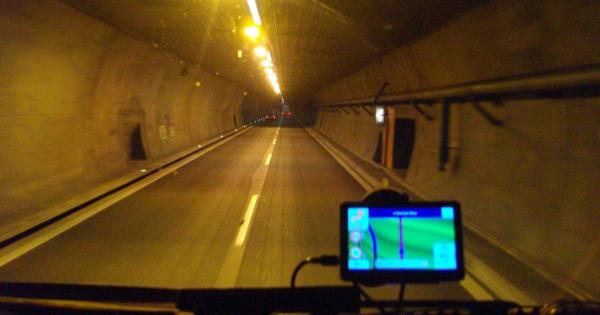
Night Closures of Mont Blanc and Fréjus Tunnels – Disruptions on the France–Italy Route
Drivers planning to travel across the Alps on the France–Italy route should prepare for significant disruptions. In June 2025, night closures and alternating (single-lane) traffic are scheduled in two key Alpine tunnels: Mont Blanc and Fréjus.
Mont Blanc Tunnel
The Mont Blanc Tunnel will be completely closed to traffic during night hours – from 10:00 p.m. to 6:00 a.m. – on the following dates:
❌ June 17, 18, 19, 26, and 30, 2025
❌ Additionally, on June 25, alternating (single-lane) traffic will be in place inside the tunnel, which may cause delays and traffic disruptions.
Fréjus Tunnel
The Fréjus Tunnel will also be subject to restrictions. Complete closures are scheduled for:
❌ June 17 and 18, from 10:00 p.m. to 5:00 a.m.
❌ June 21, from 10:00 p.m. to 2:00 a.m.
❌ Alternating (single-lane) traffic will be in effect on June 19, 20, 23, 24, 25, 26, and 27, from 10:30 p.m. to 5:15 a.m.
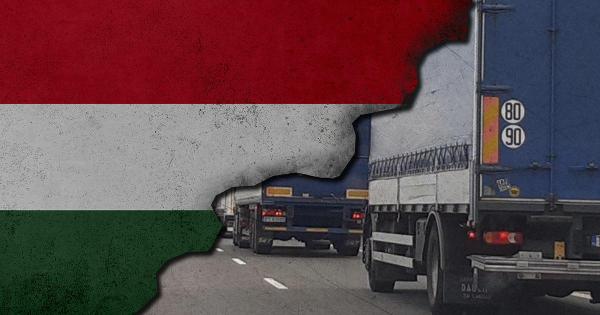
Hungary eases truck driving ban for Pentecost – night-time transit allowed
At the request of industry organizations, Hungarian authorities have decided to partially suspend the truck driving ban during night hours in order to ensure uninterrupted deliveries and meet increased demand during the long weekend.
The weekend driving restriction for heavy vehicles would normally apply for 48 consecutive hours during the Pentecost weekend. However, the ban will be partially lifted between 10:00 PM and 6:00 AM the following day to allow overnight transit.
The truck driving ban will apply during the following hours:
❌ Sunday, June 8 – from 6:00 AM to 10:00 PM
❌ Monday, June 9 – from 6:00 AM to 10:00 PM
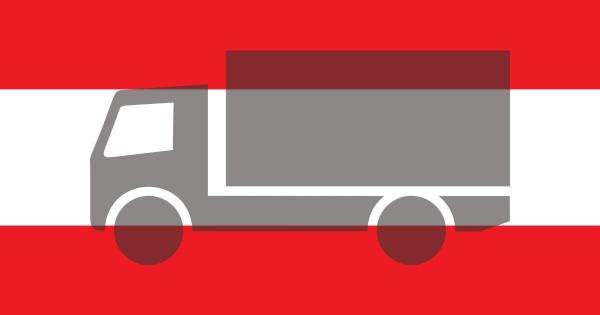
Austria: Truck traffic ban on Brenner Pass towards Italy on May 28
On Wednesday, May 28, from 7:00 AM to 10:00 PM, a temporary truck traffic ban will be in effect in Austria on one of the main routes from Germany to Italy via the Brenner Pass. The restriction is based on § 42 (3a) of the Austrian Road Traffic Regulations (StVO) and applies in particular to the A13 Brenner Autobahn.
According to this regulation, on May 28 between 7:00 and 22:00, trucks and vehicle combinations with a maximum permissible gross weight exceeding 7.5 tonnes are prohibited from driving. The same applies to trucks with trailers if the total weight also exceeds 7.5 tonnes.

The ban is directional and applies only to southbound traffic towards Italy, if the destination of the journey includes the section of the A13 between the Nößlach and Brenner Nord interchanges, which is the final stretch before the national border.
❌ The ban applies to the following motorways:
◾ A12 Inntal Autobahn,
◾ A13 Brenner Autobahn,
◾ A14 Rheintal/Walgau Autobahn,
provided that the destination includes the section of the A13 from Nößlach to Brenner Nord leading to the Italian border.
In practice, this means the restriction covers all trucks meeting the weight criteria that are traveling from Austria to Italy via the Brenner Pass.
The ban does not apply to:
◾ traffic in the opposite direction (from Italy to Austria),
◾ journeys that do not include the restricted final section of the A13.
This restriction is in force on selected days of the year, including May 28, due to anticipated high traffic volumes and the need to reduce the number of heavy goods vehicles on heavily used sections of the Austrian motorway network.
Exemptions from the ban
The following journeys are exempt from the ban:
Trips carried out exclusively for:
◾ the transport of livestock, postal shipments, newspapers, drinks to tourist areas, deliveries to fuel stations, restaurants or events,
◾ repairs to refrigeration systems, towing services, road assistance, disaster relief, medical care,
◾ vehicles of road maintenance companies or contracted vehicles, road traffic or railway construction,
◾ vehicles of public security services, fire brigades, waste collection, waste disposal, sewage treatment operations,
◾ regular public transport services, amusement rides, or transport for lighting and sound technicians traveling to and from work locations, journeys under § 42 (3a) StVO, as well as transports by trucks or articulated vehicles of Austrian or foreign armed forces present in Austria under the Federal Law Gazette I No. 57/2001, or aid transports by recognized relief organizations.
Transports carried out exclusively to or from civil airports (§ 64 of the Aviation Act) or military airfields used for civil aviation under § 62 (3) of the Aviation Act.
Combined rail-road or water-road freight transport: from the sender to the nearest technically suitable rail loading terminal or from the nearest suitable unloading terminal to the recipient, and return to the next loading location, provided that a fully completed document is carried, proving that the vehicle or its superstructure (e.g. swap body or container) has been or will be transported by rail.
The same applies analogously to combined water-road transport.
§ 42 ust. 3a StVO – Straßenverkehrsordnung
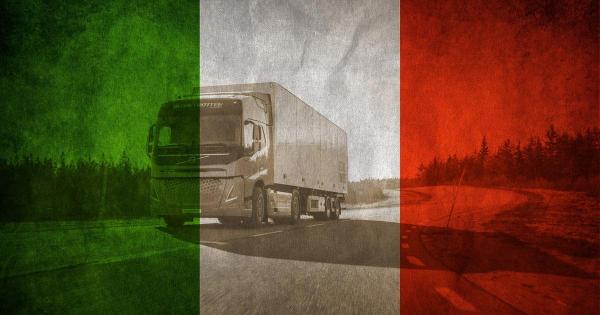
Italy: Additional truck ban on A22 before Austrian border tomorrow
The authorities of the Autonomous Province of Bolzano in Italy have imposed a temporary traffic ban for heavy goods vehicles with a gross vehicle weight of over 7.5 tons on the A22 motorway heading towards the Austrian border.
The restrictions will be in force on the following dates: Thursday, May 29; Monday, June 9; and Thursday, June 19, 2025 – from 00:00 to 22:00. The ban applies to trucks over 7.5 tons traveling on the northern section of the A22 motorway from Vipiteno to the Austrian border. Vehicles already on this section at the start of the ban may stop at the SA.DO.BRE parking area in Vipiteno or other designated parking areas, according to the instructions of the local road police.
The purpose of the ban is to ensure traffic flow and safety on the Brenner motorway during periods of increased traffic due to public holidays in Austria and Germany, where similar restrictions are also in place.
Source: Decree of the Bolzano Chamber of Commerce

Berlin: New Regulations on A100. Drivers Face €500 Fine and License Suspension.
Starting from May 15, 2025, new traffic restrictions apply on the A100 motorway near the Funkturm interchange in Berlin. These changes are the result of infrastructure issues caused by the closure of the Ringbahnbrücke and Westendbrücke bridges.
The restrictions follow the complete closure of the Ringbahn Bridge on March 19 this year. Since March 24, traffic heading towards Hamburg has been limited to a single lane in an emergency configuration. As a result, the ramp connecting the A115 to the A100 towards Hamburg has also been completely closed. The new traffic management system aims to reduce congestion and improve flow on one of the key sections of the German motorway network.
Northbound traffic will be directed through the Rathenauplatz tunnel using three lanes, but with significant restrictions:
❌ The left lane is exclusively for vehicles with a gross vehicle weight (GVW) of up to 3.5 tonnes heading towards the A100 in the direction of Hamburg.
❌ The middle lane leads to the A115 towards Leipzig.
❌ The right lane directs vehicles to the Messedamm junction, and only vehicles over 3.5 tonnes planning to continue towards Hamburg are permitted to use this lane.
WARNING: Trucks over 3.5 tonnes that do not comply with the new regulations may face a fine of €500 and a two-month driving ban.
Additionally, the entrance from the AVUS Nordkurve parking area to the A115 has been closed.

Closed Access to A2 towards Świecko. Detours via DK92 from May 17
Starting May 17, the first phase of pavement renovation will begin at the Poznań Wschód motorway interchange, where the A2 motorway intersects with the S5 expressway from Bydgoszcz. During this stage, access to the A2 motorway will be closed in both the Świecko and Warsaw directions.
As part of the expansion project to add a third traffic lane in each direction on the concession section of the A2 between the Poznań Krzesiny and Poznań Wschód interchanges, Autostrada Wielkopolska SA is moving forward with the pavement resurfacing at the Poznań Wschód interchange. The work involves replacing the surface layer and is planned in phases to minimize disruptions for drivers, ensuring that some traffic can still pass through the interchange. The first phase, focused on the renovation of the on-ramps, will start on May 17.
Detours due to ramp closures:
❌ For drivers from Bydgoszcz/Gniezno and Września heading towards Świecko – follow the detour from the Kostrzyn interchange via national road DK92 through Poznań to the Poznań Krzesiny interchange.

❌ For drivers from Kleszczewo heading towards Świecko – use the detour via the Kostrzyn interchange, DK92, and Poznań.

❌ For drivers from Bydgoszcz/Gniezno heading towards Warsaw – follow the detour from the Kostrzyn interchange via national road DK92 to the Września interchange.

❌ For drivers from Kleszczewo heading towards Warsaw – also follow the detour via the Kostrzyn interchange, DK92, and the Września interchange.

Additionally, traffic traveling west towards Świecko on the A2 main carriageway, between km 180 and km 179, will be shifted to the southbound lanes near the Poznań Wschód interchange. A speed limit of 60 km/h will be enforced in the area where the lanes are merged.
Please drive carefully and pay attention to road signs.

he resurfacing work on the on-ramps at the Poznań Wschód interchange is expected to last approximately two weeks. However, the pace of work and the completion date will largely depend on favorable weather conditions. Poor weather could delay the schedule.

Austria Extends Border Controls with Slovenia and Hungary Until November 2025
In accordance with the amendment to the regulation issued by the Austrian Federal Minister of the Interior, temporary border controls at the borders with the Republic of Slovenia and Hungary have been extended until November 11, 2025.
This is yet another decision to continue control measures at the internal borders of the Schengen Area, which – according to the authorities in Vienna – aims to enhance security and combat illegal migration. The regulation represents a formal amendment to the previously existing legal framework in this area and takes effect immediately.
Carriers and drivers should be prepared for possible document checks when crossing the Austrian borders with Slovenia and Hungary – including on the EU side.